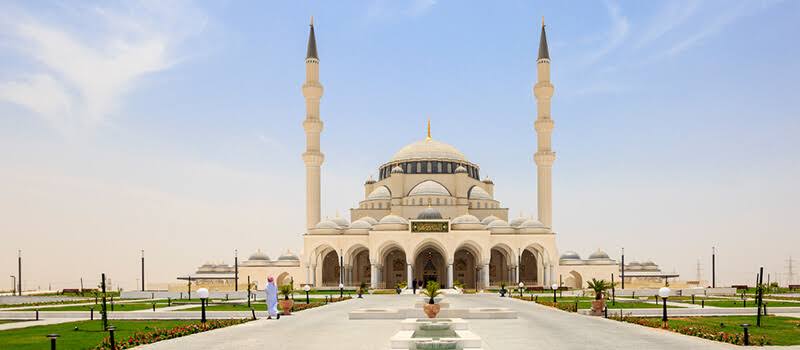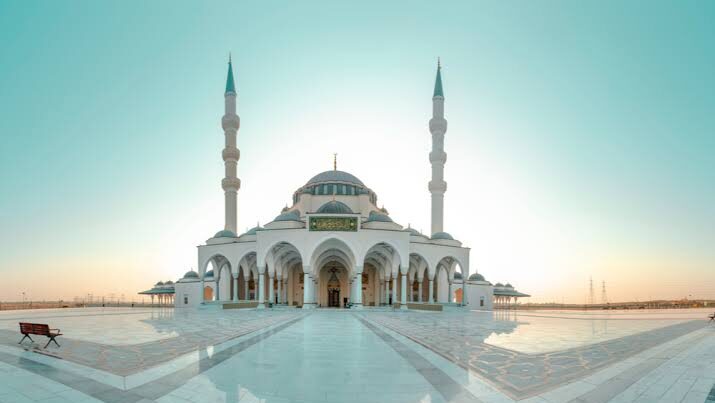For Muslims around the world, prayer (Namaz) is a cornerstone of daily life, a sacred ritual that punctuates the rhythm of the day with moments of reflection, connection, and devotion to Allah. In Sharjah, one of the UAE’s cultural and spiritual hubs, observing the five daily prayers with the correct timing is essential for worshippers. The timing of Namaz in Sharjah is aligned with the natural cycles of the day, which are marked by the position of the sun, making it a practice deeply connected to the passage of time and the natural world.
This article provides a comprehensive guide to understanding Namaz timings in Sharjah, UAE, with a focus on the cultural, spiritual, and practical aspects of prayer in the emirate. Whether you are a resident, a visitor, or a devout Muslim living abroad, knowing the precise prayer times is essential to maintain the sanctity of each prayer.
The Five Daily Prayers (Salah)
Before diving into specific prayer times, it’s important to understand the five obligatory prayers that every Muslim is required to observe:

- Fajr – The dawn prayer, offered before sunrise.
- Dhuhr – The midday prayer, offered after the sun has passed its zenith.
- Asr – The afternoon prayer, offered in the mid-to-late afternoon.
- Maghrib – The evening prayer, offered just after sunset.
- Isha – The night prayer, offered after the twilight has disappeared.
These five prayers are essential to maintaining the spiritual connection with Allah throughout the day. The timing of each prayer in Sharjah is determined by the position of the sun, making it important to know the exact times to ensure the prayers are offered on time.

Determining Namaz Timings in Sharjah
In Sharjah, Namaz timings follow the standard method used across the UAE, which is based on astronomical calculations to determine the precise moments for each prayer. This ensures that the times are accurate and reflect the Islamic guidelines for when each prayer should be performed.
The prayers are based on natural occurrences such as dawn, sunset, and twilight, so the timings fluctuate slightly throughout the year. For example, during the summer months, the days are longer, and the prayer times may shift accordingly. In contrast, during the winter months, the days are shorter, which alters the time for Fajr and Isha.
Most mosques and prayer spaces in Sharjah display Namaz timings on notice boards, digital screens, or via apps to make it easier for the community to follow. Many people also use dedicated prayer timing apps to receive notifications on their phones, ensuring they never miss a prayer.
The Prayer Timings in Sharjah
To provide a clearer picture of Namaz timings in Sharjah, let’s break down the timings for each of the five daily prayers:
1. Fajr (Dawn Prayer)
Fajr is the first prayer of the day and is performed before sunrise. The timing for Fajr begins at the break of dawn (when the sky starts to lighten) and ends just before sunrise. In Sharjah, this time generally ranges between 4:30 AM and 5:30 AM depending on the time of year. During the summer months, Fajr will occur earlier, while in winter, it will be later due to the later sunrise.
2. Dhuhr (Midday Prayer)
Dhuhr is the second prayer and is performed when the sun has passed its zenith, or the highest point in the sky. In Sharjah, the Dhuhr prayer generally occurs between 12:00 PM and 1:00 PM. The exact time varies according to the time of year, as the sun’s zenith shifts with the seasons. This prayer is often followed by a time of rest, as many worshippers take the opportunity to break for lunch.
3. Asr (Afternoon Prayer)
Asr is the third prayer of the day and is performed in the mid-to-late afternoon. The time for Asr begins once the shadow of an object is the same length as the object itself (for the Hanafi school of thought, the time starts when the shadow is twice the length of the object). In Sharjah, the Asr prayer generally takes place between 3:30 PM and 5:30 PM, depending on the time of year. The timing gradually shifts later as the days grow shorter in the winter months.
4. Maghrib (Evening Prayer)
Maghrib is the fourth prayer, and it is offered just after sunset. In Sharjah, this prayer usually occurs between 6:00 PM and 7:00 PM, again depending on the time of year. The timing of Maghrib changes based on the time of sunset, which shifts throughout the year. It is a time for family gatherings and community meals, especially with the breaking of the fast during Ramadan.
5. Isha (Night Prayer)
Isha is the final prayer of the day and is performed once the twilight has disappeared and it is completely dark. In Sharjah, the Isha prayer typically occurs between 7:30 PM and 9:00 PM, depending on the time of year. As the days grow shorter in winter, Isha occurs earlier in the evening, while during the summer, it is delayed to allow for the fading of twilight.
Tools to Track Prayer Times
In Sharjah, many people rely on technology to ensure they are aware of the correct Namaz timings. Smartphone applications, digital clocks in mosques, and online platforms provide accurate prayer times based on your geographical location. These tools automatically adjust for daylight savings time and variations in the sun’s position, making it easier for Muslims to keep track of the correct times.
Several popular apps, such as Muslim Pro, Athan, and Islamic Finder, are widely used in the UAE for their reliability and precision in providing prayer times. These apps also feature features like Qibla direction, Quranic verses, and reminders for special Islamic events.
Special Considerations for Ramadan and Eid
During the holy month of Ramadan, the timings for Fajr and Maghrib change slightly. Fajr begins earlier as it marks the start of the fasting period, while Maghrib occurs at sunset when the fast is broken. Ramadan is a special time for prayer and reflection, and the significance of each prayer becomes even more meaningful. During Eid al-Fitr and Eid al-Adha, special prayers are held at mosques in Sharjah, often with thousands of worshippers gathering for the occasion.
Mosques in Sharjah Offering Prayer Timings
Sharjah, known for its rich cultural and religious heritage, is home to many mosques that are frequented by worshippers. Some of the prominent mosques in Sharjah include:
- Al Noor Mosque – A beautiful mosque with a rich history, often visited for prayers and Islamic events.
- King Faisal Mosque – One of Sharjah’s largest mosques, offering spacious prayer areas for both men and women.
- Al Qasba Mosque – Located near the Al Qasba area, offering a peaceful environment for prayer.
These mosques, along with numerous smaller prayer halls and mosques across the city, display prayer times prominently and offer community support for those seeking guidance on the timing of Namaz.
Conclusion
Understanding Namaz timings is an essential part of daily life for Muslims in Sharjah and across the UAE. The precise timing of each prayer helps maintain the spiritual connection to Allah, structuring the day around moments of reflection and devotion. In a city like Sharjah, where religious practices are deeply embedded in the culture, the availability of prayer time information through technology, mosques, and community resources ensures that worshippers can offer their prayers on time. Whether you are a resident of Sharjah or a visitor, understanding and observing these prayer times is a meaningful part of participating in the spiritual rhythm of the city.
Do follow Uae stories for more Updates
Eid al-Fitr 2025 in the UAE: A Joyous Celebration of Faith, Charity, and Family













